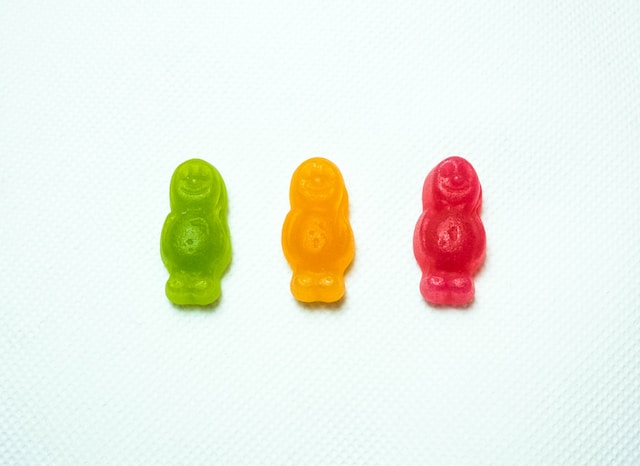Jelly is a sweet, wobbly dessert that is enjoyed by people of all ages. It is made by mixing fruit juice, sugar, and gelatin, and then allowing the mixture to set in a mold.
While jelly can be a delicious and satisfying treat, eating too much of it can have some negative consequences for your health.
One of the primary concerns with eating too much jelly is that it can contribute to excessive sugar consumption.
Jelly is often made with large amounts of added sugar, which can cause blood sugar levels to spike and then crash, leading to feelings of fatigue and hunger.
Consuming too much sugar over time can also lead to weight gain, dental problems, and an increased risk of chronic diseases such as type 2 diabetes, heart disease, and some forms of cancer.
In addition to its high sugar content, jelly may also contain other additives such as artificial flavors, colors, and preservatives. Some people may have allergic reactions to these additives, which can cause symptoms such as skin rashes, digestive upset, or breathing difficulties.

Another potential issue with consuming excessive amounts of jelly is that it can contribute to a lack of variety in your diet. While jelly can be a tasty treat, it is not a particularly nutrient-dense food.
Eating too much jelly, or relying on it as a regular part of your diet, may mean that you are not getting the full range of vitamins, minerals, and other nutrients that your body needs to stay healthy.
Lastly, eating too much jelly can contribute to digestive problems such as bloating, gas, and diarrhea. The high sugar content of jelly can cause osmotic diarrhea, a type of diarrhea that occurs when too much sugar draws water into the intestines, leading to loose stools.
While jelly can be a fun and delicious dessert, it is important to enjoy it in moderation. Eating too much jelly can contribute to excessive sugar consumption, a lack of nutrient diversity, allergic reactions to additives, and digestive problems.
If you enjoy jelly, try to incorporate it into a balanced diet that includes a variety of other healthy foods as well.
Side Effects Of OverConsuming Jelly
There can be several side effects from overconsuming jelly. Here are some of the potential side effects of overconsuming jelly:
- Weight gain: Jelly is high in calories and can contribute to weight gain if consumed in excess. Over time, excessive consumption of jelly can lead to obesity, which increases the risk of various health problems such as type 2 diabetes, heart disease, and certain cancers.
- Blood sugar spikes and crashes: The high sugar content of jelly can cause blood sugar levels to spike and then crash, leading to feelings of fatigue, hunger, and irritability.
- Dental problems: Excessive sugar consumption can lead to tooth decay and cavities.
- Allergic reactions: Some people may have allergic reactions to additives in jelly such as artificial flavors, colors, and preservatives. Allergic reactions can cause symptoms such as skin rashes, digestive upset, or breathing difficulties.
- Nutrient deficiencies: Jelly is not a particularly nutrient-dense food and consuming too much of it may mean that you are not getting the full range of vitamins, minerals, and other nutrients that your body needs to stay healthy.
- Digestive problems: The high sugar content of jelly can cause osmotic diarrhea, a type of diarrhea that occurs when too much sugar draws water into the intestines, leading to loose stools.

While jelly can be a tasty treat, it is important to enjoy it in moderation to avoid potential side effects. It is recommended to incorporate a variety of healthy foods into your diet to ensure that you are getting all the nutrients your body needs to stay healthy.
Benefits Of Eating Jelly In Moderation
Yes, there are some potential pros of eating jelly in moderation. Here are some of them:
- Source of hydration: Jelly is made with water and can provide a source of hydration. Consuming jelly can be especially helpful for people who have difficulty drinking enough water or who are recovering from an illness that has caused dehydration.
- Can provide a quick source of energy: The high sugar content of jelly means that it can provide a quick source of energy. This can be especially helpful for athletes or people who need a quick boost of energy.
- Can be a fun and enjoyable treat: Jelly can be a fun and enjoyable dessert that can add some variety to your diet. Enjoying a small serving of jelly can be a way to indulge your sweet tooth without consuming too many calories.
- Can be a creative way to incorporate fruit into your diet: Jelly can be made with a variety of fruit juices, which can provide some vitamins and minerals. Making jelly with fresh fruit can be a creative way to incorporate more fruit into your diet.
- Can be a low-fat dessert option: Depending on the ingredients used, jelly can be a low-fat dessert option. This can be helpful for people who are watching their fat intake.
While jelly should be consumed in moderation to avoid potential negative side effects, there are some potential pros to incorporating it into your diet as an occasional treat.

Just be sure to choose a jelly made with natural ingredients and limit your serving size to avoid excessive sugar intake.
Conclusion
Eating too much jelly can contribute to excessive sugar consumption, which can lead to weight gain, blood sugar spikes and crashes, dental problems, and an increased risk of chronic diseases.
However, consuming jelly in moderation can provide hydration, a quick source of energy, a fun and creative dessert option, a way to incorporate fruit into your diet, and a low-fat dessert option.
When enjoying jelly, be sure to choose a jelly made with natural ingredients, limit your serving size, and incorporate a variety of healthy foods into your diet to ensure that you are getting all the nutrients your body needs to stay healthy.
